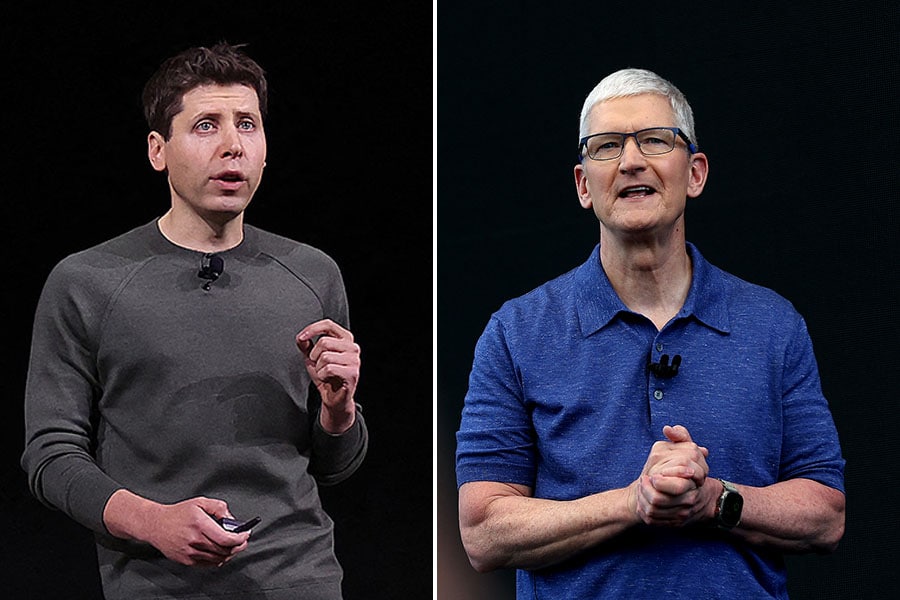Can Apple's partnership with OpenAI revive Siri?
Apple, which has been on an overdrive to catch up with the generative AI wave, is integrating ChatGPT into experiences within iOS, iPadOS, and macOS, allowing users--and Siri--to access its capabilities
 Sam Altman, CEO, OpenAI and Apple CEO Tim Cook. Image: AFP
Sam Altman, CEO, OpenAI and Apple CEO Tim Cook. Image: AFP
Siri came to life 12 years ago, a day before Steve Jobs passed away. Apple developed the personal assistant application for two years before releasing it as part of the iPhone 4S. The voice-recognition software was built on natural language processing, a subset of artificial intelligence (AI). But Siri couldn’t keep up for long, to the extent that users felt frustrated when it failed to carry out the simplest of tasks.
The first-mover advantage fizzled out, with rivals soon starting to take over. A host of virtual assistants emerged, including Samsung’s S Voice, Google Assistant, Microsoft’s Cortana, and Amazon’s Alexa. These players, available on gadgets beyond mobile phones, offered better language understanding and integration with third-party skills.
The tech giant knew it was time for an overhaul to catch up with the generative AI wave. Apple announced a horde of new artificial intelligence features at its annual Worldwide Developers Conference this week, including a refurbished Siri in partnership with OpenAI’s ChatGPT. The Cupertino-based company may be late to the party, but in hindsight, it has acquired over 30 AI startups since last year, ranging from voice assistant capabilities to expression recognition, app recommendations, and more.
Apple is integrating ChatGPT into experiences within iOS, iPadOS, and macOS, allowing users to access ChatGPT’s capabilities—including image and document understanding—without needing to jump between tools. Siri can also tap into ChatGPT’s intelligence when helpful.
The financial arrangements are not disclosed, but OpenAI will provide free access to the latest version of ChatGPT. On the privacy front, users will have to consent to each query, and their information will not be logged, according to Apple.
OpenAI CEO Sam Altman regularly faces controversies over safety concerns and their commitment to responsible AI. The latest handshake with Apple comes as a huge endorsement for the poster child of generative AI. “They’ve done some things on privacy that I like. They’re not tracking IP addresses,” Apple CEO Tim Cook said in an interview with The Washington Post. “They’re a pioneer in the area, and today they have the best model. And obviously, we’re not stuck on one person forever or something. We’re integrating with other people as well. But they’re first, and I think today it’s because they’re the best.”


















